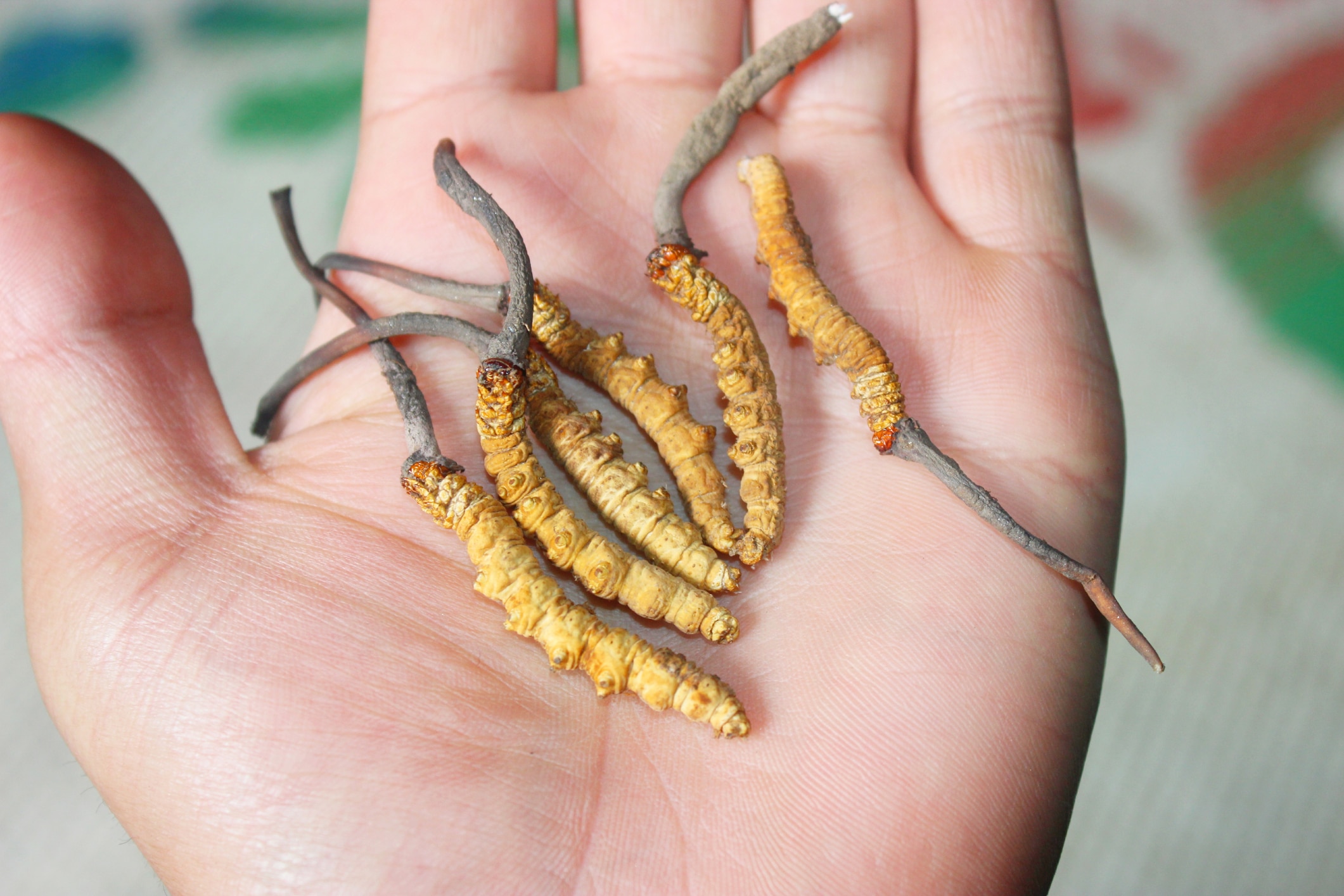TOPLINE
A team of scientists from Korea and Egypt have discovered a better way to grow insect-hunting fungi in a lab, according to research published Wednesday in Frontiers in Microbiology, a breakthrough that could pave the way to investigating a new range of cancer- and virus-fighting treatments.
KEY FACTS
Research suggests Cordyceps fungi, particularly a chemical compound found in the mushroom called cordycepin, have many possible health benefits—including potential antiviral and cancer-fighting properties—though their rarity in the wild and difficulties cultivating them make it hard to produce and test at scale.
The fungi can be grown using grains like brown rice but they do not produce much cordycepin, prompting the researchers to suggest insects—which are a richer protein source and the fungi target in nature—as a better alternative.
Tests on a variety of edible insects including mealworms, crickets and grasshoppers revealed this to be the case and study author Dr. Mi Kyeong Lee said Cordyceps grown on edible insects “contained approximately 100 times more cordycepin compared” to fungi grown on brown rice.
Though levels of cordycepin varied by what insect the fungi consumed, the researchers found that fat, not protein, was the key factor.
Lee hopes the study findings will allow cordycepin to be produced “more effectively and economically,” though she noted that supplies of edible insects are not yet sufficient to scale Cordyceps production to industrial levels.
KEY BACKGROUND
A huge number of fungi—hundreds of species—are grouped together under the Cordyceps umbrella. They excel at infecting insects, spreading and growing throughout its host’s body before eventually killing them. Some species have become famous for their ability to turn unwitting hosts into zombies, seizing control of their bodies and manipulating behavior to infect others. The fungi are eaten in parts of Asia and some species are prized ingredients in traditional medicines for many ailments. More recently, the fungi have taken off as a health supplement in the West, though like many alternative therapies there is a lack of solid scientific evidence that they work as claimed.
SURPRISING FACT
Cordycepin belongs to a class of antiviral chemicals and some evidence suggests it may have virus-fighting properties. Recent research highlights its potential as a Covid-19 therapy, Lee said. The findings strongly justify preclinical and clinical trials to evaluate it as a “comprehensive treatment,” Lee added.
TANGENT
Popular culture has seized upon the ability of Cordyceps to take control of its hosts. The fungi serve as inspiration for zombie monsters in the Last of Us game franchise, which HBO is developing into a TV series. It also inspires zombies in the book The Girl With All the Gifts.
FURTHER VIEWING
FURTHER READING
How to Tame a Zombie Fungus (Atlantic)
After This Fungus Turns Ants Into Zombies, Their Bodies Explode (NYT)
